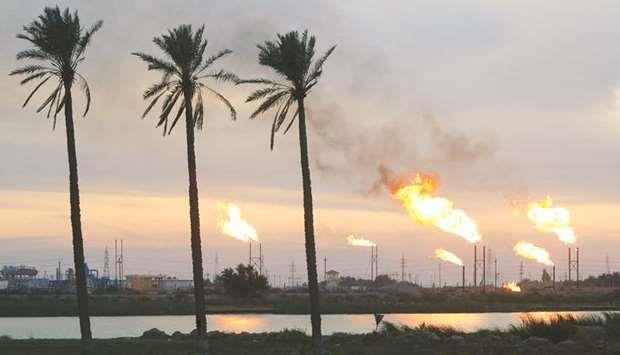
Electricity woes could tip Iraq into crisis, warns IEA
(MENAFN- Gulf Times) Chronic power outages combined with low oil prices threaten Iraq's political stability, and Opec's second-biggest producer must act fast to boost electricity supply or face a new crisis within the next two months.
That's the conclusion of Fatih Birol, the head of the International Energy Agency, which advises the world's richest economies on energy policy.
Iraq faces a widening shortfall in electricity, due largely to a lack of investment in ageing power plants and networks, and the plunge in crude prices this year limits what it can spend to upgrade them. Baghdad must slash red tape and prioritize maintenance and spending on power facilities to stave off social and political turmoil, Birol warned.
'If there are not urgent and concrete steps taken for the electricity sector, we may well have major problems in the next two months in terms of electricity supply, he said in an interview. 'It may well lead to unrest within the country.
In a grim sign of what could come, security forces in Baghdad opened fire Sunday on protesters complaining about power cuts. Two demonstrators were killed and at least 20 others wounded. Iraq's Prime Minister Mustafa al-Kadhimi said Monday that he had ordered an investigation into the killings.
Protests also erupted Tuesday in Thiqar province in southern Iraq, a day after similar demonstrations in eastern Wasit and central Babel provinces.
Power shortages have been a fact of life in Iraq since at least 2003, when the US-led invasion that toppled Saddam Hussein shattered the economy and much of its infrastructure. The country has had three electricity ministers in just the past two years, and though it's trying to build more generating capacity and upgrade transmission lines, those efforts take time.
'During the past three days, we had a total blackout, said Ahmed al-Iraqi, a 55-year-old teacher in Baghdad. 'They said it was a technical glitch. His power supply restarted on Tuesday, he said, 'but so far we've gotten one hour, and we'll see how much we get for the rest of the day.
The outages, especially interruptions in air-conditioning, are all the more unbearable as summer temperatures exceed 50 degrees Celsius (122 Fahrenheit).
'It pains me to see my fellow Iraqis endure power cuts in this hot weather, the prime minister said on Twitter. 'Unfortunately, the damage caused by years of sabotage, corruption, and mismanagement cannot be undone overnight. The coronavirus pandemic compounds the challenge. The government plans to impose a 10-day curfew starting Thursday, the start of the Eid al-Adhha holidays, to stem a surge in infections. More than 100,000 Iraqis have tested positive.
Al-Kadhimi ordered the electricity minister on Monday to speed up efforts to resolve the power shortage, the government said on Twitter. Baghdad is also pushing ahead with plans to link Iraq to a regional electricity grid and develop its natural gas resources, he said.
Iraq imports power from neighbouring Iran as well as gas to fuel generating plants. A halt by Iran in those shipments two years ago contributed to protests in southern Iraq's oil-rich Basrah province.
Financial constraints, however, limit what the government can do. The coronavirus has shuttered economies and crushed global oil demand, triggering a 35% plunge in crude prices this year.
What's more, the Organization of Petroleum Exporting Countries and its partners are making record cuts in output to prop up the market. Not only is Iraq, Opec's biggest exporter after Saudi Arabia, producing less oil; it's earning less for the barrels it pumps.
'Iraq reforming its economy is not a matter for debate, Finance Minister Ali Allawi said last week on a conference call that the IEA arranged with Iraqi ministers and international energy executives. 'It is essential and it is vital that reforms are comprehensive and timely.
Birol, the Paris-based IEA's executive director, said Iraq is generating about 9,500 megawatts less than what it needs to meet demand this summer, compared with a shortfall of 6,000 megawatts in 2019. Better maintenance of the country's power plants and systems would offer a partial quick fix, he said.
But to redress its long-term energy imbalance, Iraq must invest in new equipment and facilities, capture more of the gas that it flares off and wastes, and develop solar energy and other renewables, he said.
If not, civil unrest could worsen.
'It may have severe or serious security consequences for Iraq and for the region, Birol said.

Legal Disclaimer:
MENAFN provides the
information “as is” without warranty of any kind. We do not accept
any responsibility or liability for the accuracy, content, images,
videos, licenses, completeness, legality, or reliability of the information
contained in this article. If you have any complaints or copyright
issues related to this article, kindly contact the provider above.


















Comments
No comment